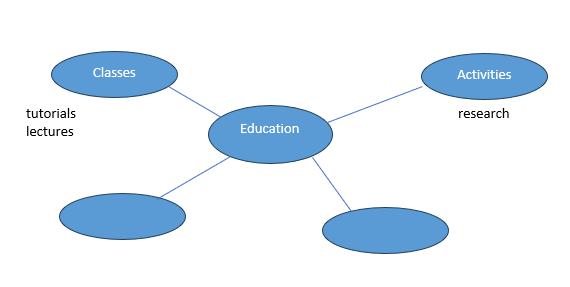- Mar 21, 2025
How to Improve Vocabulary for the IELTS Test – Part 1
The ability to recognise and use a wide range of words and expressions accurately and appropriately can significantly boost your score in all parts of the test.
In this two-part blog series, we’ll explore effective strategies and practical tips for improving your vocabulary for the IELTS Test.
Let’s start off by looking at how reading regularly, learning about words in context and focusing on topic-specific vocabulary can contribute to increasing your IELTS band score.
Read Regularly (and widely)
One of the easiest and most effective ways to improve your vocabulary (and your language overall!) is to read regularly, and from diverse sources. Different types of texts will give you exposure to a variety of words and phrases that are commonly used in both everyday conversations and more academic contexts.
How to do it:
Read newspapers, books, and magazines: Try to read a mix of both fiction and non-fiction. For example, reading news articles or editorials will help you increase your world knowledge (which can be very helpful when coming up with examples for Speaking Part 3 and Writing Task 2) and provides exposure to more formal language. Novels and short stories, on the other hand, will introduce you to informal and idiomatic language.
Use online resources: Blogs, news websites, and blog transcripts are great tools for reading in an informal and natural context. Start off by reading about topics that are of particular interest to you and, once you get into a reading rhythm, you can try exploring other topics that you might not normally engage with. Why not start with our blogs?
Learn Vocabulary in Context
A lot of learners like to make long lists of words and then memorise them. Unfortunately, this is possibly the least effective way to improve your vocabulary because long lists mean that the words are being viewed in isolation. Instead, reading will help you to focus on learning new words in context. You will be able to see how words are used naturally in sentences and improve your ability to use them appropriately when speaking or writing.
How to do it:
Understand word usage: Use a dictionary to look up the definitions of new words, but also focus on their usage in different contexts. Pay attention to the form and register (or tone) in which words are used. For example,
Summer is my favourite season.
Many people season their food with too much salt.
Create example sentences: After learning a new word, you could try to create sentences using it. This will help you remember its meaning and reinforce its use in different contexts. For instance, if you learn the word “polarising,” try to use it in a sentence: “The use of fluoride in drinking water is a polarising issue with people strongly in favour and fervently against.”
-
Focus on collocations: Many words are frequently used together in fixed combinations known as collocations (e.g., "fast food", "pay attention"). Learning common collocations will help you sound more natural both while you are writing and speaking.
Focus on Topic-Specific Vocabulary
In the IELTS Test, you’ll encounter a wide range of topics, from technology to education and from the environment to health. By focusing on vocabulary related to these common topics, you’ll be better prepared for the Listening, Reading, Writing, and Speaking Tests.
How to do it:
Make topic lists: For each common IELTS topic, record relevant vocabulary based on your reading. You could use a diagram to record the vocabulary e.g.

Access media on specific topics: Once you have your vocabulary record, read articles, watch videos, or listen to podcasts on the topic and pay attention to how the vocabulary is used in context. This will give you a deeper understanding of how to use these words effectively.
Why not check out our Team IELTS Vocabulary packs that come complete with authentic test questions and topic cards covering a variety of subjects commonly featured in the IELTS test?
Make sure you come back to look at the second part of our “How to Improve Vocabulary for the IELTS Test” series.
Click here to join our free monthly IELTS lessons. Or, if you're in a hurry, click here to get all our IELTS lessons on demand.
Let us help you prepare for your IELTS test.
Good luck!